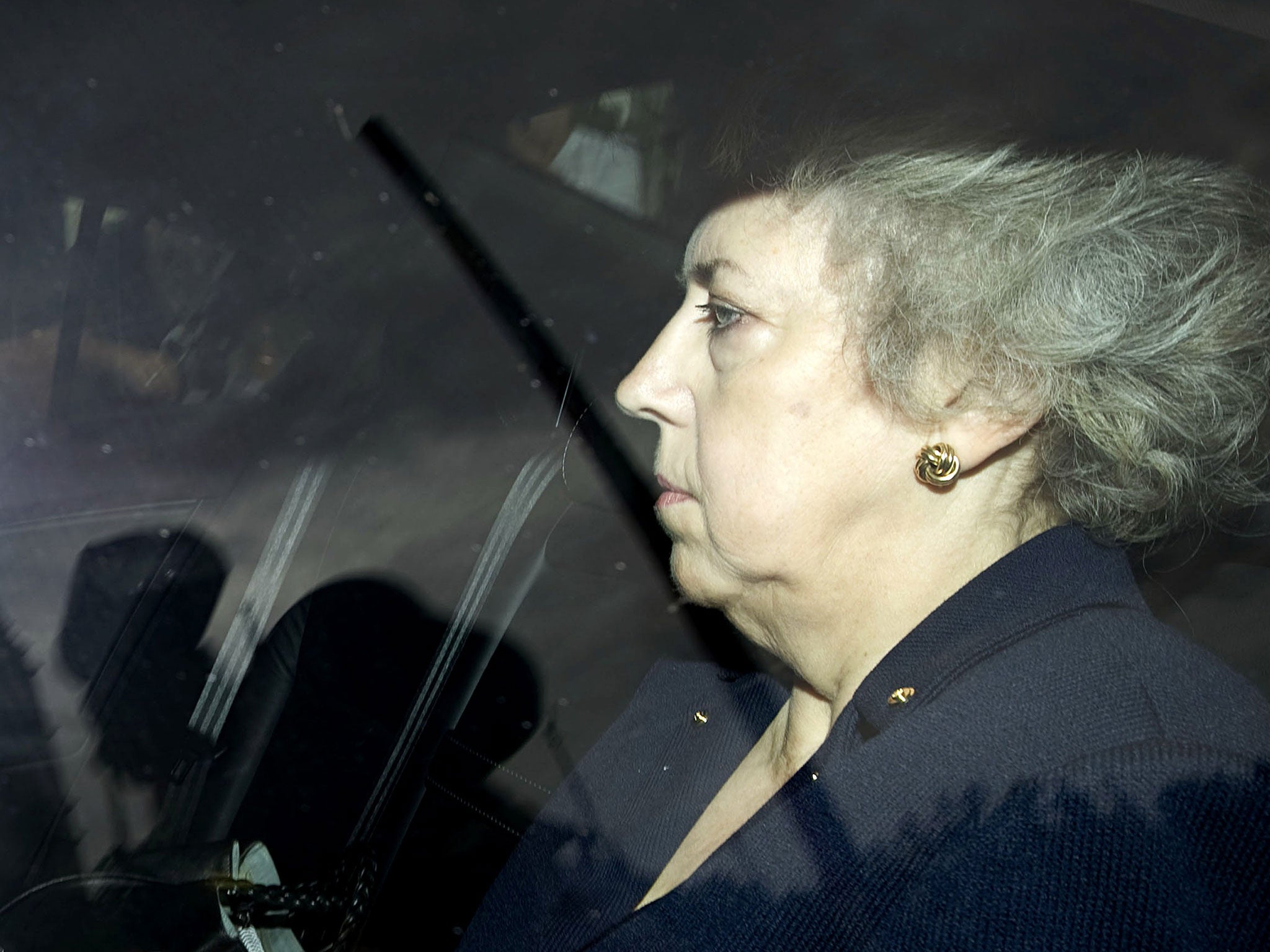US will make deal with Edward Snowden, claims former MI5 head Dame Eliza Manningham Buller
Dame Eliza Manningham Buller believes the leaks have caused damage

Your support helps us to tell the story
From reproductive rights to climate change to Big Tech, The Independent is on the ground when the story is developing. Whether it's investigating the financials of Elon Musk's pro-Trump PAC or producing our latest documentary, 'The A Word', which shines a light on the American women fighting for reproductive rights, we know how important it is to parse out the facts from the messaging.
At such a critical moment in US history, we need reporters on the ground. Your donation allows us to keep sending journalists to speak to both sides of the story.
The Independent is trusted by Americans across the entire political spectrum. And unlike many other quality news outlets, we choose not to lock Americans out of our reporting and analysis with paywalls. We believe quality journalism should be available to everyone, paid for by those who can afford it.
Your support makes all the difference.A former head of Britain’s Security Service MI5 believes that whistleblower Edward Snowden will be offered a deal by the United States in exchange for agreeing to halt any further leaks of government material.
Dame Eliza Manningham Buller, told BBC Radio Four’s Today Programme that she did not support publication of the US National Security Agency material because only those working in intelligence would have had the available evidence to understand its consequences.
When asked if she thought Mr Snowden would be prosecuted if he was caught by the US, she said: “I think what will happen actually is there’ll come a deal that he doesn’t release any more, but I really don’t know.”
Dame Manningham Buller, who was guest-editing the programme, said of the former CIA Agent and The Guardian’s decision to publish his leaked material: “I do understand that there are people who think he’s done a public service and who applaud him but I can’t really be one of them because what neither The Guardian, or really anybody, including me, can judge, is what damage he has done to counter-terrorism, which is my subject.
“We can’t, I can’t, they can’t see what the loss of information it is; what plots were being investigated that have now gone dark; what will not now be detected and not now be thwarted. So my concern is the damage which I don’t think anybody outside the intelligence community can really detect or judge.”
The ex-security chief, who ran the service from 2002 to 2007, was also asked about the Chilcot Enquiry into the Iraq war. Her evidence to it in 2010 caused controversy when she said that the evidence to go to war had not “substantial enough” and that it had radicalised a generation against the British Government.
She told the BBC it was “very important” that its findings were published: “A lot of people have contributed to that report, a lot of people have given evidence, it’s been working for a long time now.”
She added: “I want Chilcot to be able to publish. I imagine, I don’t know, that getting agreement from the Americans to publish is also going to be an issue.”
On the issue of whether correspondence between George Bush and Tony Blair should be published, she said: “I think this is a very difficult question because the fact is, that if it is published the future conversations between presidents and prime ministers, which are recorded in a note as to what they discussed, are less likely to be recorded. The flip side of freedom of information is that things are not written down and that is damaging for policy making, it’s damaging for history, so I can see both sides of the question.”
The programme also looked into her mother’s role in the Second World War, during which she ran carrier pigeons from her home in a village in Oxfordshire. Dame Manningham Buller said that her mother was told that “one of her pigeons brought back confirmation of what was happening at Peenemünde, where the V2 rockets were being made, which led to the RAF raid”.
Join our commenting forum
Join thought-provoking conversations, follow other Independent readers and see their replies
Comments